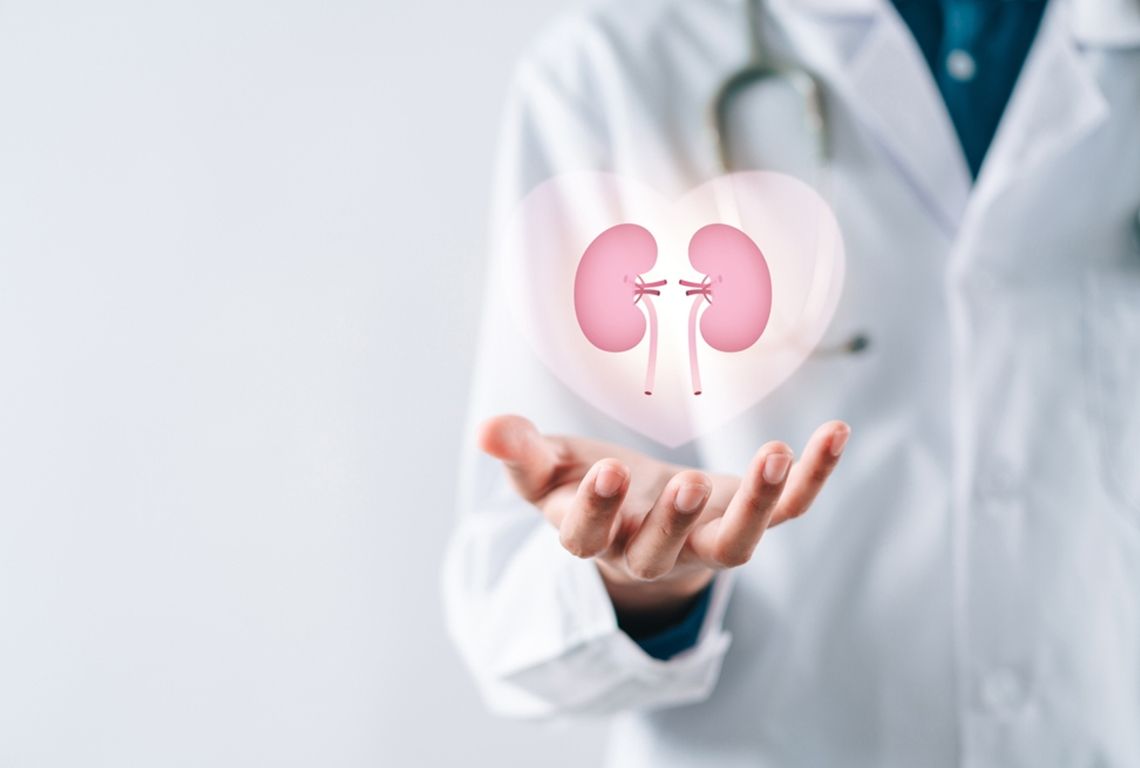
Chronic Kidney Disease (CKD) affects millions of people worldwide and progresses through five distinct stages. Understanding these stages and the available treatment options is essential for managing the condition effectively and improving quality of life. Dr. Nisha Gaur, the Best Nephrologist in Jaipur, shares insights into CKD to help patients make informed decisions about their health.
What is Chronic Kidney Disease?
Chronic Kidney Disease refers to the gradual loss of kidney function over time. The kidneys play a critical role in filtering waste and excess fluids from the blood, regulating blood pressure, producing red blood cells, and maintaining bone health. CKD occurs when the kidneys become damaged and fail to perform these functions efficiently.
The Five Stages of Chronic Kidney Disease
CKD is classified into five stages based on the Glomerular Filtration Rate (GFR), which measures how well the kidneys filter blood.
Stage 1: Mild Kidney Damage with Normal GFR
-
GFR: 90 or above
-
Symptoms: Typically asymptomatic, but underlying conditions such as high blood pressure or diabetes may be present.
-
Management:
-
Control blood pressure and blood sugar levels.
-
Maintain a healthy lifestyle, including a balanced diet and regular exercise.
-
Monitor kidney function through regular check-ups.
-
Stage 2: Mild Reduction in Kidney Function
-
GFR: 60-89
-
Symptoms: Few noticeable symptoms; protein in the urine may be detected.
-
Management:
-
Focus on slowing the progression through lifestyle modifications.
-
Address underlying conditions such as hypertension or diabetes.
-
Consult a nephrologist for tailored advice.
-
Stage 3: Moderate Reduction in Kidney Function
-
GFR: 30-59
-
Symptoms: Fatigue, swelling in the hands and feet, back pain, and changes in urination patterns.
-
Management:
-
Dietary changes, including reducing salt, potassium, and phosphorus intake.
-
Medications to control blood pressure, anemia, and other complications.
-
Regular monitoring of kidney function.
-
Stage 4: Severe Reduction in Kidney Function
-
GFR: 15-29
-
Symptoms: Worsening fatigue, swelling, nausea, and difficulty concentrating.
-
Management:
-
Prepare for potential dialysis or kidney transplant.
-
Close monitoring and management of complications such as high blood pressure and bone disease.
-
Regular consultations with a nephrologist.
-
Stage 5: End-Stage Kidney Disease (ESKD)
-
GFR: Less than 15
-
Symptoms: Severe symptoms such as fluid retention, shortness of breath, and persistent nausea.
-
Management:
-
Dialysis or kidney transplant is essential.
-
Palliative care options may be considered for patients who cannot undergo dialysis or transplantation.
-
Treatment Options for Chronic Kidney Disease
Effective management of CKD involves a combination of lifestyle changes, medications, and advanced medical interventions tailored to the stage of the disease.
Lifestyle Changes
-
Dietary Modifications:
-
Reduce sodium, potassium, and phosphorus intake.
-
Opt for high-quality protein sources and limit processed foods.
-
-
Regular Exercise: Engage in low-impact activities such as walking or yoga.
-
Smoking Cessation: Smoking accelerates kidney damage and worsens cardiovascular health.
-
Hydration: Drink adequate water, but consult your nephrologist to avoid overhydration.
Medications
-
Blood Pressure Control: ACE inhibitors or ARBs are commonly prescribed.
-
Diabetes Management: Maintain blood sugar levels within the target range.
-
Anemia Treatment: Iron supplements or erythropoiesis-stimulating agents may be required.
-
Phosphate Binders: To manage high phosphorus levels in the blood.
Dialysis
Dialysis becomes necessary in advanced stages of CKD when the kidneys can no longer filter waste effectively. Two main types are:
-
Hemodialysis: Blood is filtered using a machine.
-
Peritoneal Dialysis: The lining of the abdomen acts as a filter.
Kidney Transplant
A kidney transplant is the best long-term solution for ESKD. It involves replacing the diseased kidney with a healthy one from a living or deceased donor. Dr. Nisha Gaur provides expert guidance on preparing for and recovering from kidney transplantation.
When to Consult a Nephrologist
Early consultation with a nephrologist can slow the progression of CKD and improve outcomes. Signs you should see a specialist include:
-
Persistent fatigue and weakness.
-
Swelling in the ankles, feet, or hands.
-
Changes in urination patterns.
-
Uncontrolled high blood pressure.
Dr. Nisha Gaur, recognized as the Nephrologist in Jaipur, offers personalized care plans and advanced treatments to manage CKD effectively.
Preventing Chronic Kidney Disease
While CKD cannot always be prevented, adopting a healthy lifestyle can significantly reduce your risk:
-
Monitor Blood Pressure: Aim for a target of 120/80 mm Hg.
-
Control Blood Sugar Levels: Especially important for individuals with diabetes.
-
Maintain a Healthy Weight: Obesity increases the risk of kidney disease.
-
Stay Hydrated: Proper hydration supports kidney function.
-
Avoid Overuse of Painkillers: Non-prescription pain relievers can harm the kidneys.
-
Regular Health Check-ups: Early detection is key to effective management.
Living with Chronic Kidney Disease
CKD requires long-term management, but with the right approach, many patients lead fulfilling lives. Emotional support, dietary guidance, and regular medical care are vital components of coping with the disease. Support groups and counseling can also help patients and their families navigate the challenges associated with CKD.
Conclusion
Understanding the stages of Chronic Kidney Disease and the available treatment options is crucial for managing the condition effectively. From lifestyle changes to advanced medical treatments, each stage requires a unique approach. Early diagnosis and expert care from professionals like Dr. Nisha Gaur, the Best Nephrologist in Jaipur, can make a significant difference in slowing disease progression and improving quality of life.





Leave a Reply